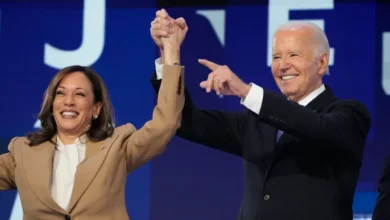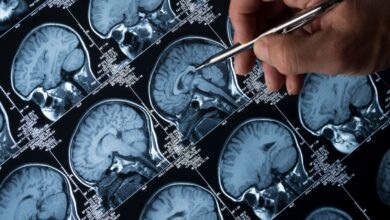JB Pritzker – Leadership and Legacy in Illinois Politics
JB Pritzker – Leadership and Legacy in Illinois Politics

JB Pritzker, the 43rd Governor of Illinois, has made a significant impact on the state’s political landscape since taking office in 2019. As a member of one of America’s wealthiest families, Pritzker’s transition from business to politics has been closely watched and often scrutinized. However, his tenure as governor has been marked by bold initiatives, progressive policies, and a commitment to addressing long-standing challenges in Illinois. This article explores JB Pritzker’s political journey, his achievements, and the challenges he faces as he continues to shape the future of Illinois.
Early Life and Business Background: A Foundation for Leadership
Born on January 19, 1965, in Atherton, California, Jay Robert “JB” Pritzker is a member of the Pritzker family, one of the wealthiest families in the United States, known for their ownership of the Hyatt Hotel chain and various other business ventures. Despite his privileged upbringing, Pritzker was instilled with a strong sense of responsibility and philanthropy from an early age.
Pritzker attended Duke University, where he earned a bachelor’s degree in political science, and later went on to receive his Juris Doctor degree from Northwestern University School of Law. Before entering politics, he established himself as a successful entrepreneur and venture capitalist, founding the Pritzker Group, a private investment firm. His business acumen and understanding of economic issues would later become central to his political platform.
In addition to his business ventures, Pritzker has been a longtime advocate for early childhood education and technology innovation. He played a key role in the creation of the Illinois Venture Capital Association and has been involved in various philanthropic efforts, including the Pritzker Children’s Initiative, which focuses on early childhood development.
Entry into Politics: The Road to the Governor’s Mansion
JB Pritzker’s official entry into politics came in 2017 when he announced his candidacy for the governorship of Illinois. His campaign was built on a platform of progressive values, with a focus on economic growth, healthcare, education, and social justice. Pritzker positioned himself as a champion of working families, vowing to address the financial and social challenges facing the state.
Pritzker’s campaign was notable for its focus on economic issues, particularly his proposal for a progressive income tax, which he argued would make the tax system fairer for middle and lower-income residents while generating much-needed revenue for the state. His campaign also emphasized the need to expand access to healthcare, invest in public education, and address the state’s pension crisis.
In November 2018, Pritzker won the gubernatorial election by a significant margin, defeating the incumbent Republican Governor Bruce Rauner. His victory was seen as a rejection of Rauner’s policies and a mandate for Pritzker’s progressive agenda. Upon taking office in January 2019, Pritzker inherited a state with deep financial troubles, but he quickly set about implementing his campaign promises.
Governance and Key Achievements: Progressive Leadership in Action
Since taking office, Governor JB Pritzker has enacted a series of ambitious reforms aimed at transforming Illinois into a more equitable and prosperous state. One of his most significant achievements was the passage of the Illinois Fair Tax amendment, which aimed to replace the state’s flat income tax with a graduated income tax. Although the amendment was ultimately rejected by voters in the 2020 election, Pritzker’s push for tax reform underscored his commitment to addressing economic inequality in Illinois.
Pritzker has also been a strong advocate for expanding access to healthcare. Under his leadership, Illinois became one of the first states to codify the Affordable Care Act into state law, ensuring that key provisions, such as protections for pre-existing conditions, would remain in place regardless of changes at the federal level. Additionally, Pritzker expanded Medicaid coverage and worked to lower prescription drug costs for Illinois residents.
Another hallmark of Pritzker’s governorship has been his focus on education. He has increased funding for public schools, expanded access to early childhood education, and implemented reforms aimed at improving the quality of education across the state. Pritzker also signed a law raising the minimum teacher salary, addressing the critical issue of teacher shortages in Illinois.
In the realm of social justice, Pritzker has made significant strides as well. He signed legislation legalizing recreational marijuana, with a focus on expunging the records of those with prior cannabis-related offenses and ensuring that communities disproportionately affected by the war on drugs benefit from the new industry. Furthermore, Pritzker has taken steps to protect the rights of LGBTQ+ individuals, immigrants, and workers, making Illinois one of the most progressive states in the country on these issues.
Challenges and Controversies: Navigating a Complex Political Landscape
While Governor Pritzker’s tenure has been marked by numerous achievements, it has not been without challenges and controversies. One of the most significant challenges has been managing the state’s finances, particularly in light of the COVID-19 pandemic, which exacerbated Illinois’ already precarious fiscal situation. The state faced a massive budget deficit, and Pritzker was forced to make difficult decisions, including proposing tax increases and budget cuts, to address the shortfall.
The pandemic also brought criticism of Pritzker’s handling of the state’s response. While some praised his leadership and the implementation of strict public health measures, others, particularly from the business community and political opponents, criticized the economic impact of prolonged shutdowns and restrictions. The tension between public health and economic stability has been a central issue during Pritzker’s time in office.
Pritzker’s efforts to pass the Illinois Fair Tax amendment also faced significant opposition, ultimately leading to its defeat in the 2020 referendum. The loss was a major setback for Pritzker, who had made tax reform a cornerstone of his agenda. Despite this, he has continued to advocate for policies that promote fiscal responsibility and economic equity.
Another controversy that has dogged Pritzker is related to his personal wealth. As one of the wealthiest politicians in the United States, Pritzker has faced scrutiny over his tax practices and the use of his fortune to fund his political campaigns. Critics have argued that his wealth creates a disconnect between him and the average Illinois resident, although Pritzker has consistently countered that his success in business gives him the experience needed to manage the state’s economy effectively.
Looking Ahead: The Future of Pritzker’s Leadership
As JB Pritzker looks toward the future, his focus remains on advancing the progressive agenda that has defined his time in office. He has made clear his commitment to continuing the fight for economic justice, healthcare access, and social equity. Pritzker’s leadership during a time of unprecedented challenges has earned him both praise and criticism, but his resolve to address the deep-rooted issues facing Illinois remains steadfast.
One of the key issues on Pritzker’s agenda moving forward is addressing the state’s pension crisis, which continues to be a significant financial burden. Pritzker has proposed various solutions, including refinancing the state’s pension debt and increasing state contributions, but the issue remains a contentious and complex one.
Additionally, Pritzker is likely to continue advocating for environmental sustainability, particularly through initiatives aimed at reducing carbon emissions and promoting clean energy. His administration has already taken steps in this direction, such as signing the Climate and Equitable Jobs Act, which sets Illinois on a path to 100% clean energy by 2050.
As Pritzker prepares for the next phase of his governorship, he remains a key figure in both Illinois and national politics. His leadership during difficult times, his commitment to progressive values, and his ability to navigate complex political landscapes have made him a powerful and influential voice in the Democratic Party. Whether he continues in his role as governor or pursues higher office, JB Pritzker’s impact on Illinois and beyond is sure to be felt for years to come.
Conclusion: A Legacy in the Making
JB Pritzker’s journey from the business world to the governor’s mansion has been marked by ambition, resilience, and a steadfast commitment to public service. His tenure as governor of Illinois has been defined by bold initiatives, significant achievements, and the ability to navigate the challenges of leadership during turbulent times.
As he continues to push for progressive change and address the pressing issues facing Illinois, Pritzker’s legacy as a transformative leader is still in the making. Whether he succeeds in his future endeavors will depend on his ability to build on the successes of his first term, overcome the challenges that lie ahead, and continue to earn the trust and support of the people of Illinois.



